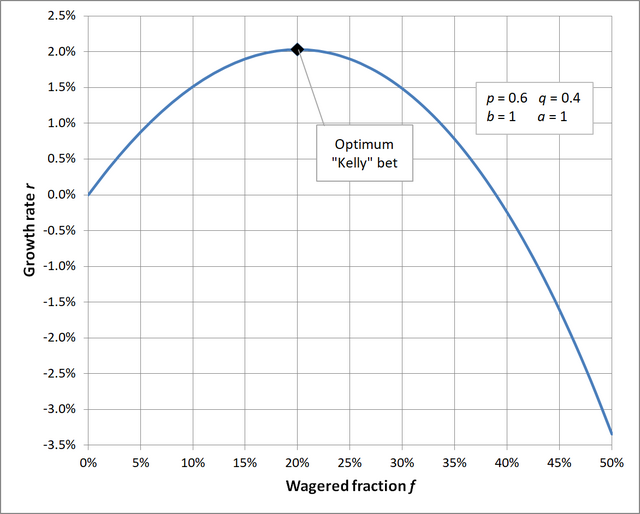Risk management and Kelly criterion
As poker players, we are always trying to find spots to get our money in "good" (have an edge given the odds offered)
But it's a common myth that any profitable wager is worth taking. I believed in this for a long time until I started running bad and experiencing variance.
With limited bankroll, limited liferoll and limited time in this life to do all the things we want to do, it intuitively doesn't make sense to take every profitable wager regardless of how small the edge is.
Turn out, this spot has been studied in mathematics -
A practical example for cash game players.
Let's say you are playing 100NL and have a bankroll of 50 buy ins (each buy is 100BB)
You raise to 2.5 BB, get 3bet to 8.5 BB, and decide to 4 bet AKo to 25 BB (ignore the positions for the purpose of this example). Your opponent moves all in for 100 BB with a likely range of AK, QQ+ (Let's assume a tight range for the purpose of this example)
AKo has 38.8% equity against this range.
The odds you are getting are 5 to 3. So you need 37.5% equity to break even.
So this is a trivial call right? + EV?
It is + EV to call here, but that's not enough.
Using Kelly criterion, we can get an upper bound on the amount we should be willing to wage given this edge as a function of our bankroll.
I used this site to get the exact numbers
https://www.albionresearch.com/tools/kel...
It is 2.08% of our bankroll.
So if we have a bankroll of 5000BB, risking 103BB is worth it given the edge we have. So with a bankroll of 50 BI, we can actually make the call.
This is not too different from ICM "risk premium" - to actually make a call "worth it" - we often need more equity than the direct odds we are getting.
3 Replies
Some observations based on this
1. If you think a spot is close and you have to risk a lot of big blinds to realize your equity, it is probably not worth it unless you have a very good bankroll.
2. The above is mainly true when calling. If you are raising or betting instead, the fold equity will change the math in your favour.
3. If you are playing heads up against the same player a lot, it might make sense to call down in marginal spots anyway - as part of a bigger strategy. But in multi handed games, this becomes less important.
4. The hard part about calling a bet is figuring out the exact range your opponent is making a bet with and your exact equity against that range. Even a small change in assumptions can change your equity by 5+% - and that can turn a good call into a bad one OR a bad fold into a good one. And that is the beauty of the game. Knowing when to holdem and when to foldem.
You can use Kelly to determine your BR. I made post about this sometime ago
https://forumserver.twoplustwo.com/69/on...
Awesome. Didn't come across this before. Reading.

